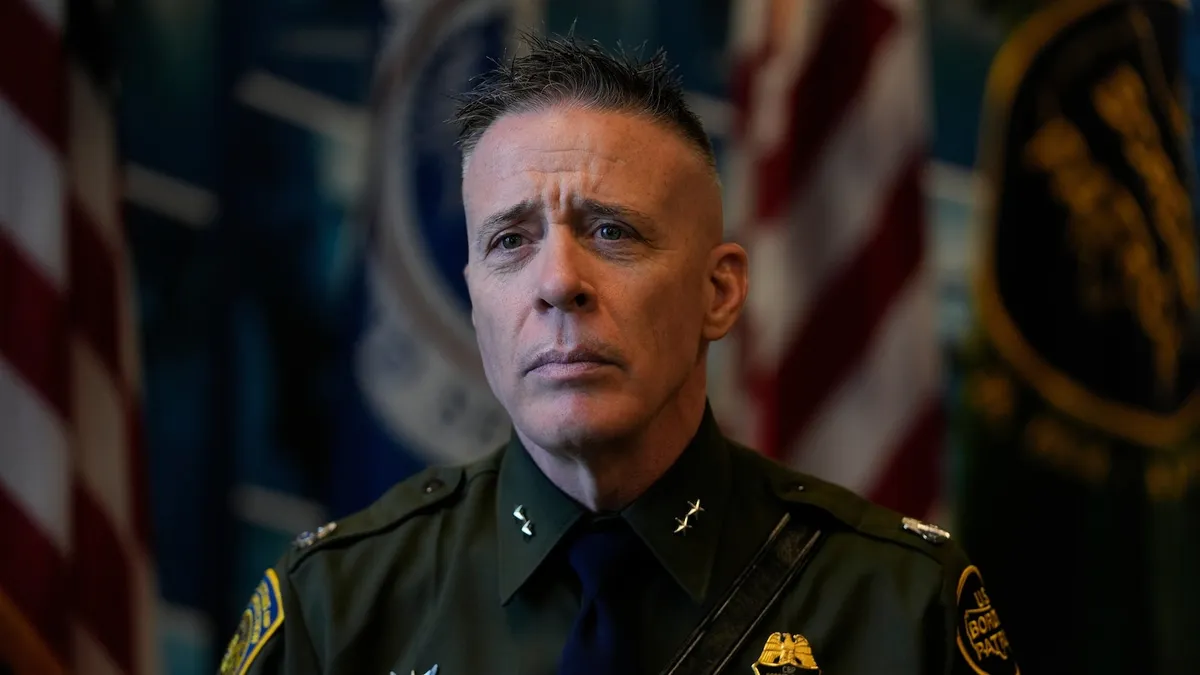
A Border Patrol official at the forefront of the Trump administration's immigration enforcement crackdown in Chicago has admitted to providing false information regarding a rock-throwing incident that was used to justify the deployment of tear gas against protesters. This revelation came from U.S. District Judge Sara Ellis, who issued a preliminary injunction on Thursday, restricting the use of force during immigration arrests and related protests.
The incident that occurred on October 23, involving Border Patrol Commander Greg Bovino, has emerged as a pivotal element in ongoing court proceedings challenging the tactics employed by immigration agents during the Trump administration's Operation Midway Blitz, which commenced in September. Video footage from the scene showed Commander Bovino deploying a gas canister at demonstrators in Chicago's Little Village neighborhood without issuing a verbal warning, which the judge noted was a breach of a previously established temporary restraining order that limited the use of force.
Initially, both Commander Bovino and the Department of Homeland Security (DHS) asserted that he had sustained a head injury from a rock before deploying the tear gas. However, Judge Ellis pointed out that video evidence contradicted this claim, revealing that he was not struck until after the tear gas was released. “Bovino ultimately admitted he was not hit until after he threw the tear gas,” Judge Ellis stated.
Following the incident, the DHS defended Commander Bovino's actions, claiming that a transport van carrying undocumented immigrants had come under attack from demonstrators. According to Assistant Secretary Tricia McLaughlin, the situation escalated as the crowd became increasingly hostile, throwing rocks and other objects at agents, with one allegedly striking Chief Bovino. McLaughlin stated that Border Patrol agents had issued multiple warnings and had employed their training appropriately, arguing that the use of chemical munitions was in line with CBP policy and essential for safeguarding both law enforcement personnel and the public.
In response to the judge's ruling granting a preliminary injunction, a spokesperson for the DHS criticized the decision as an overreach by what they described as an "activist judge." The spokesperson expressed concern that the injunction jeopardized the safety of law enforcement officers, emphasizing the threats faced by federal agents, including attacks with rocks, fireworks, and even gunfire. They asserted that the law enforcement community demonstrates remarkable restraint and exhausts all options before escalating to force. Additionally, the spokesperson announced that the DHS plans to appeal the judge's order.
During the hearing, Judge Ellis highlighted several instances that she argued demonstrated a disregard for the First Amendment rights of journalists, demonstrators, and religious practitioners by federal agents. She cited a September 19 video showing agents deploying flash-bang grenades and tear gas against protesters at the Broadview immigration facility without any prior warning. Judge Ellis remarked, “I saw little reason for the use of force that federal agents employed,” raising critical questions regarding the conduct of law enforcement during these operations in the Chicagoland area.
In a deposition played earlier in the week, Commander Bovino defended both his actions and those of his fellow immigration agents, asserting that he believed all uses of force during the operation in the Chicago region were justified and exemplary. This assertion, however, is now under scrutiny as the legal proceedings continue to unfold.